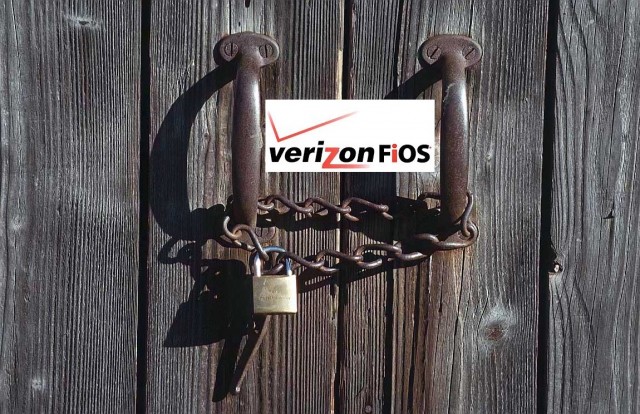
Verizon casts off its rural landline network for some customers.
Verizon landline customers reporting problems with their service in Pennsylvania may be soon targeted for Verizon’s wireless landline replacement — Voice Link — according to two sources sharing an internal memo with Broadband Reports.
The May 7 memo states that a significant number “selected customers” will be migrated off Verizon’s copper landline network to the Voice Link wireless service. One of the sources recognized the move as an end run around regulators:
“It has become painfully obvious to both our employees and customers that Verizon wishes to divest themselves of all regulated services,” says the source. “Abandoning our regulated wire line customers in favor of fixed point LTE may seem like a clever move but it violates “The Negroponte Principle” and will ultimately bump-up against the immutable laws of spectrum conservation physics.”
“It’s a shame that corporations like Verizon can build a FTTCS based wireless empire with regulatory subsidies provided by their wireline customers and then force them onto the unregulated wireless side,” argues the insider. “Questions of ethics and legality abound and perhaps regulatory over-sight is warranted here.”
Verizon may not get too much oversight from Pennsylvania regulators hoodwinked by the telecom company in the past.
Voice Link is a voice-only wireless home phone replacement that lacks certain calling features, Caller ID with Name for one, and requires the homeowner to provide power (and backup batteries in the event of a power failure). Customers are also dependent on quality reception from the nearest Verizon Wireless cell tower and that it remains in service during severe weather events or prolonged power outages.
Some of the customers likely targeted are still waiting for DSL broadband service from Verizon. If those customers are identified as Voice Link prospects, they will be waiting for broadband forever because Voice Link does not support data services and Verizon cannot supply DSL over a scrapped landline network.

Stop the Cap! has also learned today that the Federal Communications Commission has no problem with Verizon’s unilateral action to switch landline customers to wireless.
A FCC representative told our reader Anne, who is currently fighting Verizon over its plans to abandon landline service on the New Jersey Barrier Island, that they consider Voice Link a functionally equivalent landline service. In a response that could have come directly from Verizon customer service, the FCC helpfully describes the new service Anne already understands and does not want:
Q. What if Verizon is NOT replacing copper with fiber, but is going strictly to wireless? There will be no landlines whatsoever. Is that acceptable?
A. “Yes that is acceptable and it is called Verizon Voice Link. It is a wireless device that plugs into the telephone lines in your home, allowing customers the ability to use their home telephone to make and receive calls.” — FCC Representative Number : TSR54
“This second FCC response, like the first one, ignores the issue, is unprofessional and is insulting,” says Anne. “Obviously, I already know what Voice Link is.”


 Subscribe
Subscribe

 CenturyLink’s massive nationwide broadband service outage on May 7 hurt Florida schools trying to administer online testing, small businesses in Nevada that were forced to close for the day, and frustrated nearly six million customers across both states and in Arkansas, Missouri, Louisiana, Texas, Kansas, Minnesota, Ohio, Wisconsin, Pennsylvania, Colorado, Washington, Virginia, Michigan, Montana, Oregon, Tennessee, and Illinois.
CenturyLink’s massive nationwide broadband service outage on May 7 hurt Florida schools trying to administer online testing, small businesses in Nevada that were forced to close for the day, and frustrated nearly six million customers across both states and in Arkansas, Missouri, Louisiana, Texas, Kansas, Minnesota, Ohio, Wisconsin, Pennsylvania, Colorado, Washington, Virginia, Michigan, Montana, Oregon, Tennessee, and Illinois.
 A California federal judge has rejected a class action case against Comcast for allegedly hiding modem fees as high as $15 a month when signing up new customers.
A California federal judge has rejected a class action case against Comcast for allegedly hiding modem fees as high as $15 a month when signing up new customers. Judge Armstrong wrote that Diacakis should have come to court with evidence beyond the spoken promises of a handful of Comcast salespeople the plaintiff identified only by their first names. She was swayed by Comcast’s arguments:
Judge Armstrong wrote that Diacakis should have come to court with evidence beyond the spoken promises of a handful of Comcast salespeople the plaintiff identified only by their first names. She was swayed by Comcast’s arguments:
